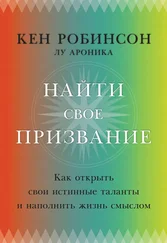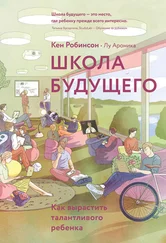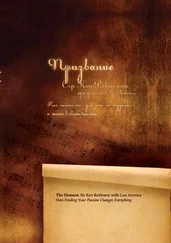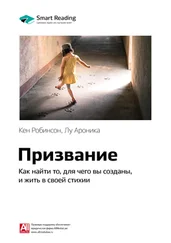Кен Робинсон - The Element
Здесь есть возможность читать онлайн «Кен Робинсон - The Element» весь текст электронной книги совершенно бесплатно (целиком полную версию без сокращений). В некоторых случаях можно слушать аудио, скачать через торрент в формате fb2 и присутствует краткое содержание. Год выпуска: 2009, ISBN: 2009, Издательство: Penguin Books Ltd, Жанр: Самосовершенствование, на английском языке. Описание произведения, (предисловие) а так же отзывы посетителей доступны на портале библиотеки ЛибКат.
- Название:The Element
- Автор:
- Издательство:Penguin Books Ltd
- Жанр:
- Год:2009
- ISBN:9780141911250
- Рейтинг книги:3 / 5. Голосов: 1
-
Избранное:Добавить в избранное
- Отзывы:
-
Ваша оценка:
- 60
- 1
- 2
- 3
- 4
- 5
The Element: краткое содержание, описание и аннотация
Предлагаем к чтению аннотацию, описание, краткое содержание или предисловие (зависит от того, что написал сам автор книги «The Element»). Если вы не нашли необходимую информацию о книге — напишите в комментариях, мы постараемся отыскать её.
The Element — читать онлайн бесплатно полную книгу (весь текст) целиком
Ниже представлен текст книги, разбитый по страницам. Система сохранения места последней прочитанной страницы, позволяет с удобством читать онлайн бесплатно книгу «The Element», без необходимости каждый раз заново искать на чём Вы остановились. Поставьте закладку, и сможете в любой момент перейти на страницу, на которой закончили чтение.
Интервал:
Закладка:
BEING GOOD AT SOMETHING and having a passion for it are essential to finding the Element. But they are not enough.
Getting there depends fundamentally on our view of ourselves and of the events in our lives. The Element is also a matter of attitude.
When twelve‐year‐old John Wilson walked into his chemistry class at Scarborough High School for Boys on a rainy day in late October 1931, he had no way of knowing that his life was about to change completely. The class experiment that day was to show how heating a container of water would bring oxygen bubbling to the surface, something students at this school and at schools all around the world had been doing for a very long time. The container the teacher gave John to heat, however, was not like the containers students everywhere had used. Somehow, this container mistakenly held something more volatile than water. It turned out that the container had the wrong solution because a laboratory assistant had been distracted and put the wrong label on the bottle. And when John heated it with a Bunsen burner, the container exploded, shattering glass bottles in the vicinity, destroying a portion of the classroom, and pelting the students with razor‐edged shards. Several students came away from this accident bleeding.
John Wilson came away from it blinded in both eyes. Wilson spent the next two months in the hospital. When he returned home, his parents attempted to find a way to deal with the catastrophe that had befallen their lives. But Wilson did not regard the accident as catastrophic. “It did not strike me even then as a tragedy,” he said once in an interview with the Times of London. He knew he had the rest of his life to live, and he did not intend to live it in an understated way. He learned braille quickly and continued his education at the esteemed Worcester College for the Blind. There, he not only excelled as a student but also became an accomplished rower, swimmer, actor, musician, and orator.
From Worcester, Wilson studied law at Oxford. Away from the protected environs of a school set up for blind students, he needed to contend with a busy campus and the very active streets in the vicinity. Rather than relying on a walking stick, though, he relied on an acute sense of hearing and what he called his “obstacle sense” to keep him out of harm’s way. At Oxford, he received his law degree and set out to work for the National Institute for the Blind. His real calling, however, was still waiting for him.
In 1946, Wilson went on a fact‐finding tour of British territories in Africa and the Middle East. What he found there was rampant blindness. And unlike the accident that cost him his eyesight, the diseases that affected so many of these people were preventable with the proper medical attention. For Wilson, it was one thing to accept his own fate and quite another to allow something to continue when it could be fixed so easily. This moved him to action.
The report Wilson delivered upon his return led to the formation of the British Empire Society for the Blind, now called Sight Savers International. Wilson himself served as the director of the organization for more than thirty years and accomplished remarkable things during his tenure.
His work often led him to travel more than fifty thousand miles a year, but he considered this an essential part of the job, believing that he needed to be present in the places where his organization’s work was being done. In 1950, he and his wife lived in a mud hut in a part of Ghana known as “the country of the blind” because a disease that came from insect bites had blinded 10 percent of the population. He set his team to work on developing a preventative treatment for the disease, commonly known as “river blindness.” Using the drug Mectizan, the organization inoculated the children in the seven African countries stricken with the disease and all but eradicated it. By the early 1960s, river blindness was overwhelmingly under control. It is no exaggeration to say that generations of African children can thank the efforts of John Wilson for their sight.
Under Wilson’s direction, the organization conducted three million cataract operations and treated twelve million others at risk of becoming blind. They also administered more than one hundred million doses of vitamin A to prevent childhood blindness and distributed braille study packs to afflicted people throughout Africa and Asia. In all, tens of millions can see because of the commitment John Wilson made to preventing the preventable.
When Wilson retired, he and his wife devoted their considerable energies to Impact, a program of the World Health Organization that works on the prevention of all types of disabling diseases. Knighted in 1975, he also received the Helen Keller International Award, the Albert Schweitzer International Prize, and the World Humanity Award. He continued to be an active and prominent voice for the cause of preventing blindness and all avoidable disability until his death in 1999.
John Coles, in his biography Blindness and the Visionary: The Life and Work of John Wilson , wrote, “By any standards, his achievements rate comparison with those of other great humanitarians.” Others have compared his accomplishments with those of Mother Teresa.
Many people, faced with the circumstances Sir John Wilson encountered, would have bemoaned their existence. Perhaps they would have considered themselves cursed by ill fortune and frustrated in their attempts to do anything significant with their lives. Wilson, however, insisted that blindness was “a confounded nuisance, not a crippling affliction,” and he modeled that attitude in the most inspiring possible way.
He lost his sight and found a vision. He proved dramatically that it’s not what happens to us that determines out lives—it’s what we make of what happens.
Attitude and Aptitude
There is a risk in giving examples of people who have found their Element. Their stories can be inspiring, of course, but they can also be depressing. After all, these people seem blessed in some way; they’ve had the good fortune to do what they love to do and to be very good at doing it. One could easily ascribe their good fortune to luck, and certainly many people who love what they do say that they’ve been lucky (just as people who don’t like what they’re doing with their lives often say they’ve been unlucky). Of course, some “lucky” people have been fortunate to find their passions and to have the opportunities to pursue them. Some “unlucky” people have had bad things happen to them. But good and bad things happen to all of us. It’s not what happens to us that makes the difference in our lives. What makes the difference is our attitude toward what happens. The idea of luck is a powerful way of illustrating the importance of our basic attitudes in affecting whether or not we find our Element.
Describing ourselves as lucky or unlucky suggests that we’re simply the beneficiaries or victims of chance circumstances. But if being in your Element were just a matter of chance, all you could do is cross your fingers and hope to get lucky as well. There’s much more to being lucky than that. Research and experience show that lucky people often make their luck because of their attitudes.
Chapter 3 looked at the concept of creativity. The real message there is that we all create and shape the realities of our own lives to an extraordinary extent. Those who simply wait for good things to happen really would be lucky to encounter them. All of the people I’ve profiled in this book have taken an active role in “getting lucky.” They’ve mastered a combination of attitudes and behavior that lead them to opportunities and that give them the confidence to take them.
One of these is the ability to look at situations in different ways. There’s a difference between what we are able to perceive— our field of perception—and what we actually do perceive. As I mentioned in the last chapter, there are significant cultural differences in how people perceive the world around them. But two different people with the same cultural orientations may still see the same scene in completely different ways, depending upon their preconceptions and their sense of mission. Best‐selling author and top motivational speaker Anthony Robbins demonstrates this with a simple activity. In his three‐day seminars, he asks the thousands of people in attendance to look around and count how many items of green clothing they can see. He gives them a few minutes to do this and then asks them for their findings. He then asks them how many items of red clothing they saw. Most people can’t even begin to answer the question because Robbins told them to look for items of green clothing, and they only focused on those.
Читать дальшеИнтервал:
Закладка:
Похожие книги на «The Element»
Представляем Вашему вниманию похожие книги на «The Element» списком для выбора. Мы отобрали схожую по названию и смыслу литературу в надежде предоставить читателям больше вариантов отыскать новые, интересные, ещё непрочитанные произведения.
Обсуждение, отзывы о книге «The Element» и просто собственные мнения читателей. Оставьте ваши комментарии, напишите, что Вы думаете о произведении, его смысле или главных героях. Укажите что конкретно понравилось, а что нет, и почему Вы так считаете.












